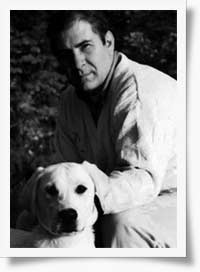 Most of us are descendants of people who have come to America looking for liberty. Many endured great hardships to do so, leaving everything familiar behind, taking with them only the clothes on their backs, a few meager belongings and their hopes and dreams.
Most of us are descendants of people who have come to America looking for liberty. Many endured great hardships to do so, leaving everything familiar behind, taking with them only the clothes on their backs, a few meager belongings and their hopes and dreams.
For Patrick Henry, liberty was “the greatest of all earthly blessings.” For H. G. Wells, it “is the very substance of life.”
What is so compelling?
The word liberty comes from the Latin word for free. Webster’s dictionary tell us it is: the state of being free, the power to do as one pleases, freedom from despotic control, and the power of choice.
Liberty, in other words, is freedom, and it embraces all of forms of that virtue that we hold dear. Freedom of speech, freedom of press, freedom of religion and other forms of personal freedoms were gauged so essential to the vitality of our democracy that they were written into our constitution and guaranteed by the Bill of Rights.
But liberty, like our other core values, cannot exist independently and unrestrained. Our core values exist in dynamic tension, feeding into, enabling, and balancing each other. Without balance, for example, the pursuit of happiness degenerates into a free-for-all, a kingdom where the strong preside over the weak. Without balance, liberty becomes license.
As the distinguished Federal Judge Learned Hand observed, “Liberty is not the freedom to do as one likes. That is the denial of liberty. A society in which men recognize no check upon their freedom soon becomes a society where freedom is in the possession of only a savage few.”
Liberty implies thought and choice. Choice implies responsibility. Liberty provides the opportunity to fulfill our ambitions, but it must be balanced by equality and our respect for the equal rights of others. In words that will be familiar to every first year law student, “Your right to swing your fist ends where my nose begins.”
During the Civil War, President Abraham Lincoln addressed this issue as only he could. “We all declare for liberty; but in using the same word, we do not all mean the same thing,” he said. “With some, the word ‘liberty’ may mean for each man to do as he pleases with himself and the produce of his labor; while with others, the same word may mean for some men to do as they please with other men and the produce of other men’s labor. Here are two, not only different, but incompatible things, called by the same name – liberty.
“The shepherd drives the wolf from the sheep’s throat, for which the sheep thanks the shepherd as his liberator, while the wolf denounces him for the same act as the destroyer of liberty. Plainly the sheep and the wolf are not agreed upon the definition of the word “liberty”; and precisely the same difference prevails today, among us human creatures.”
True liberty consists of the opportunity for a full development of all possibilities – intellectual, material, and moral – latent in man. Ultimately, it has a religious root, which is why, G. K. Chesterton said, “men find it so easy to die for and so difficult to define.
De Tocqueville said it this way:
“The American character is the result of two distinct elements, which in other places have been in frequent hostility, but which in America have been admirably incorporated and combined with one another…Liberty regards religion as its companion in all its battles and its triumphs – as the cradle of its infancy, and the divine source of its claims. It considers religion as the safeguard of morality, and morality as the best security of law and the surest pledge of the duration of freedom.”
Ultimately, it is not the existence of liberty but the way in which liberty is used that determines whether liberty itself survives. Whenever we take away the liberties of those whom we hate, we are opening the way to loss of liberty for those we love. Like love, liberty is one of the things you cannot have unless you are willing to share it with others.

